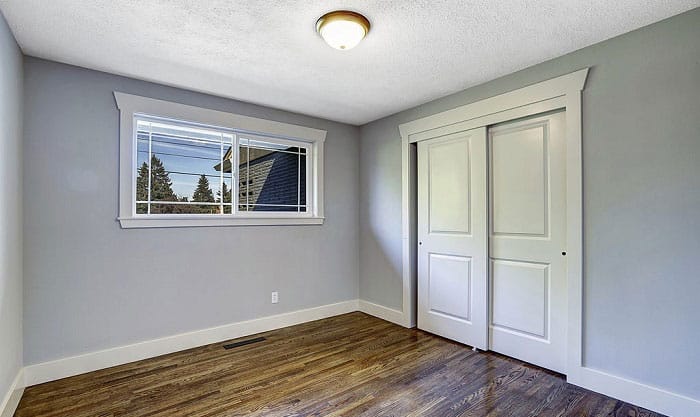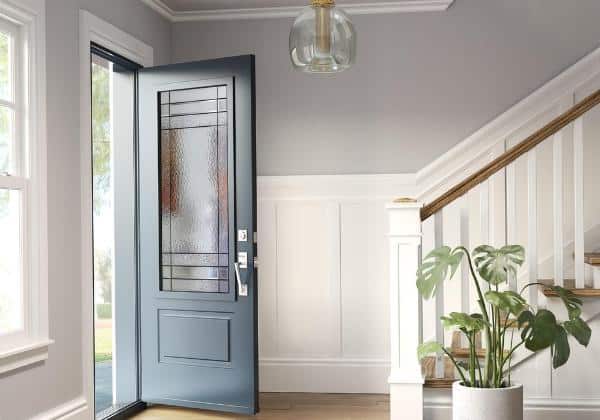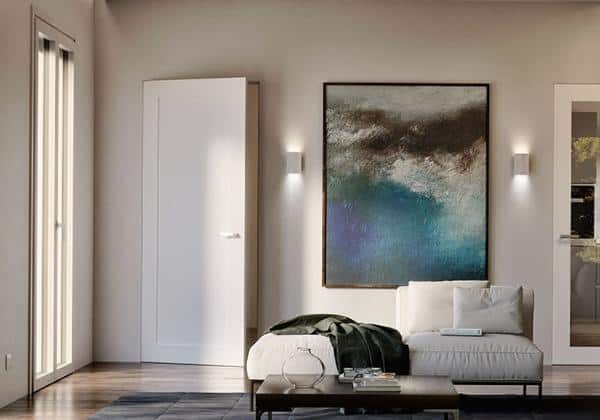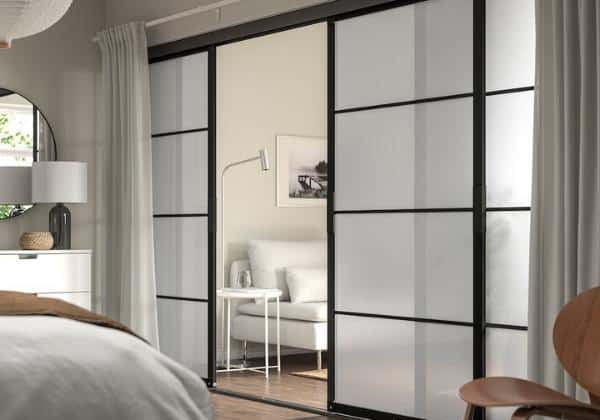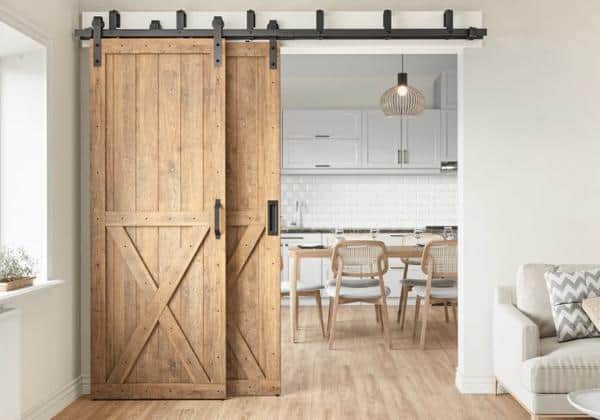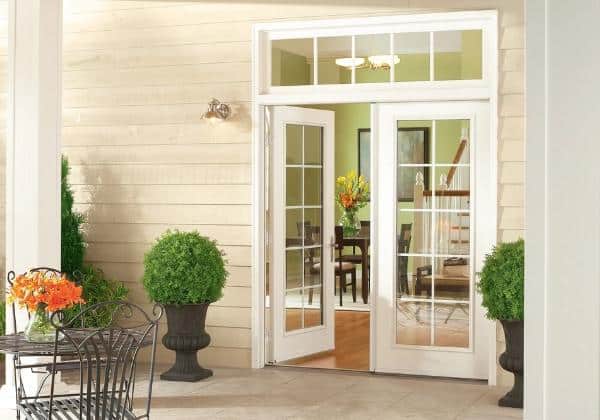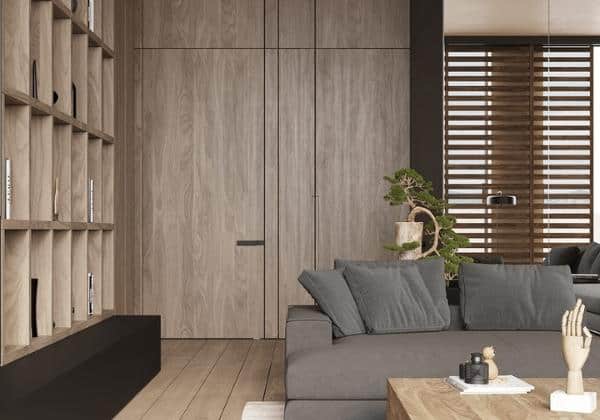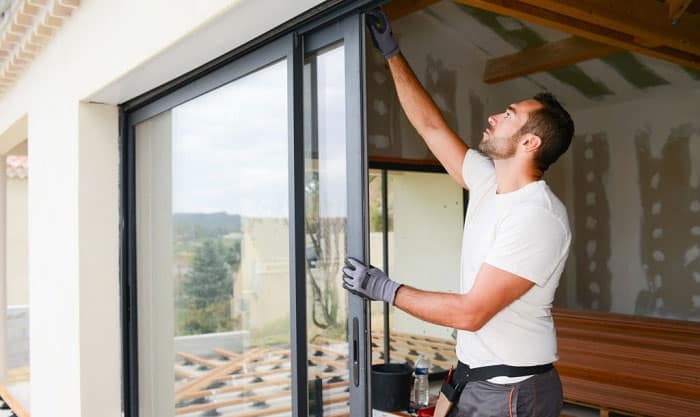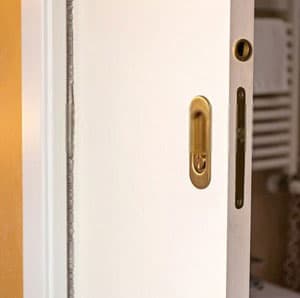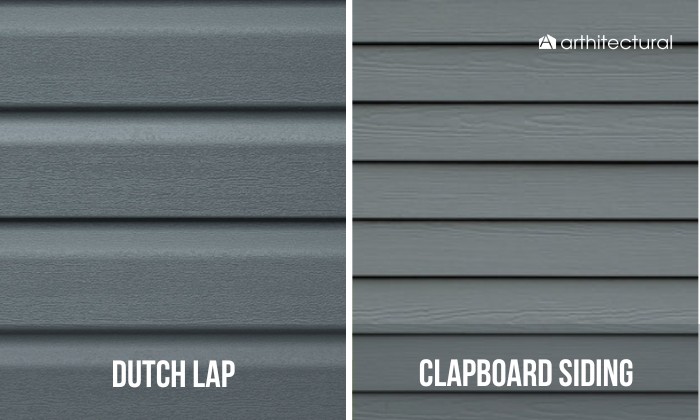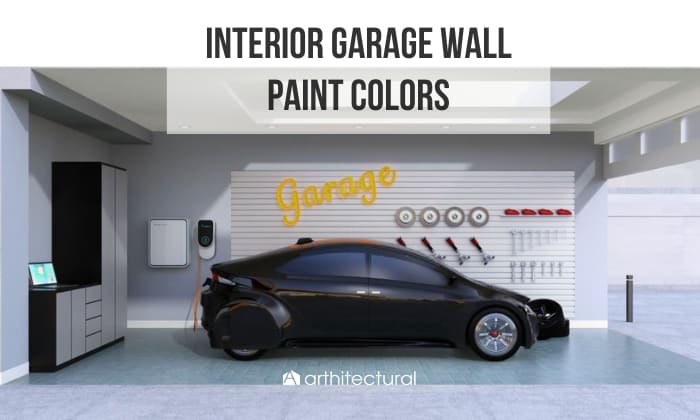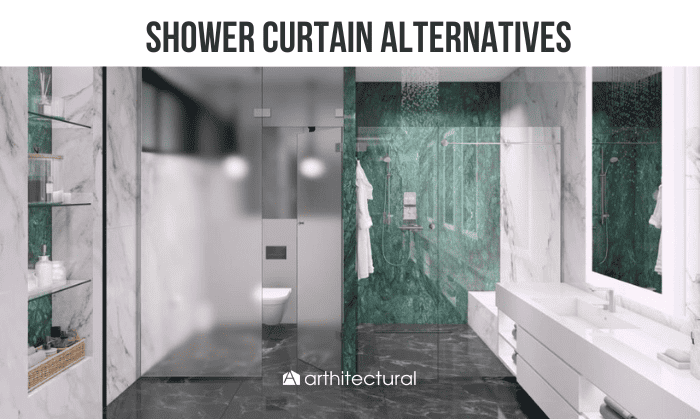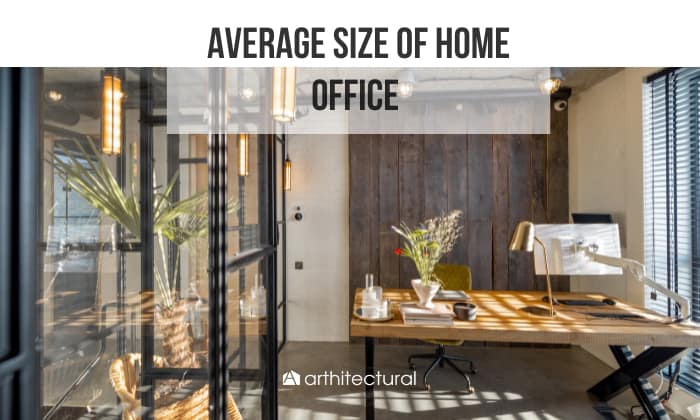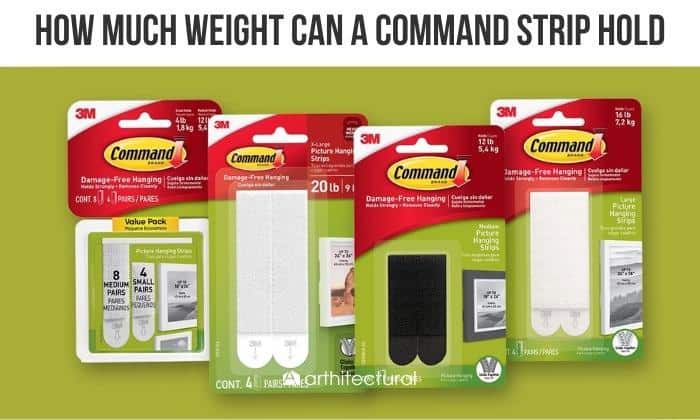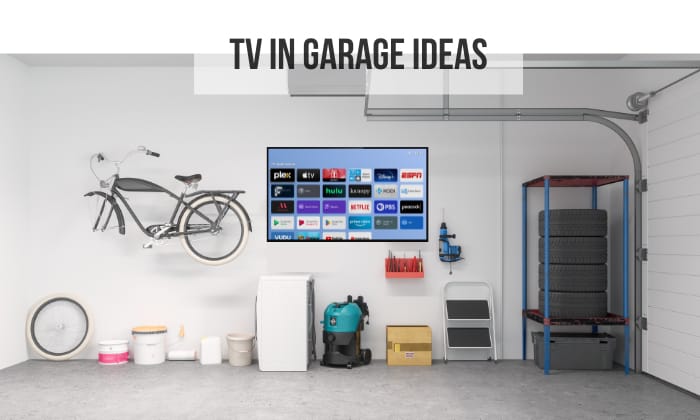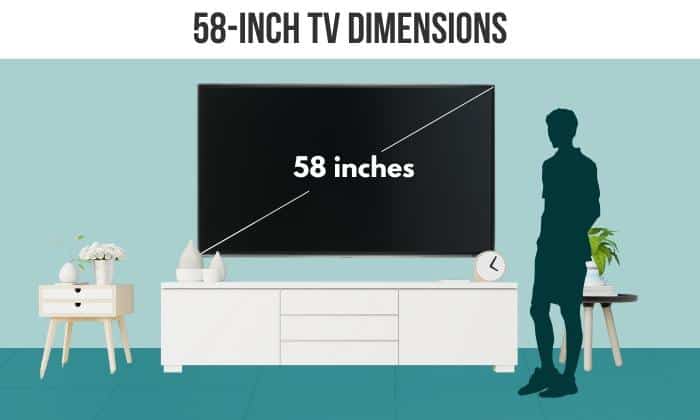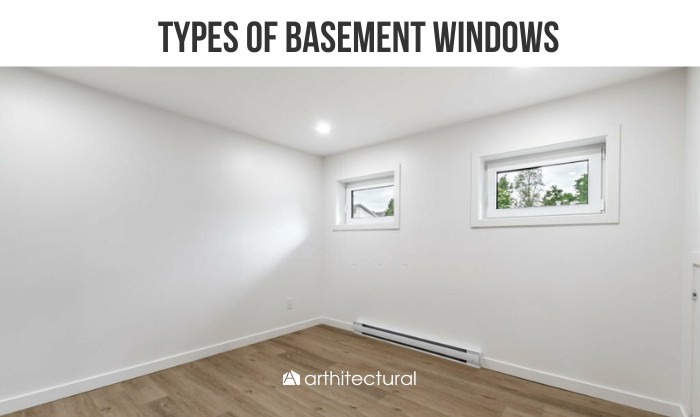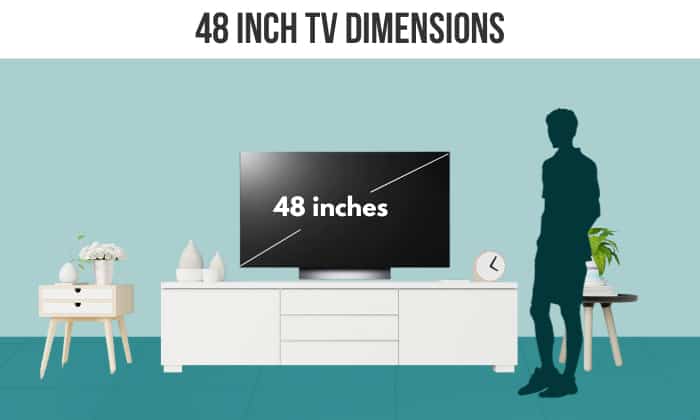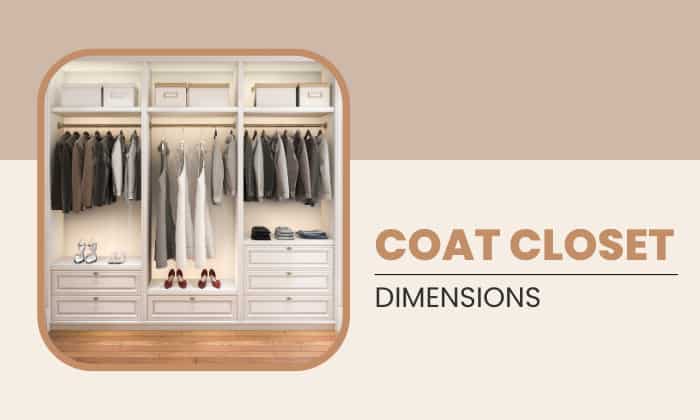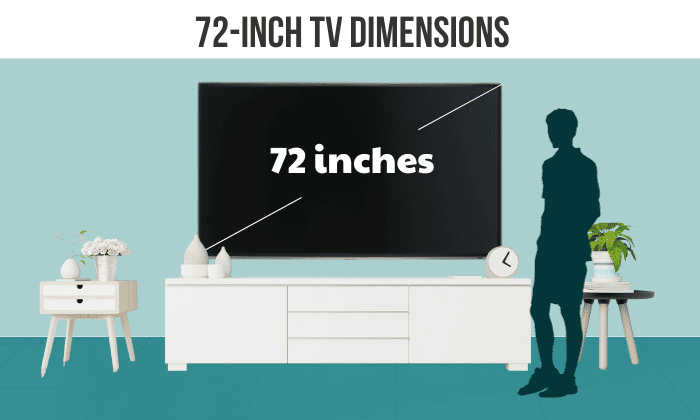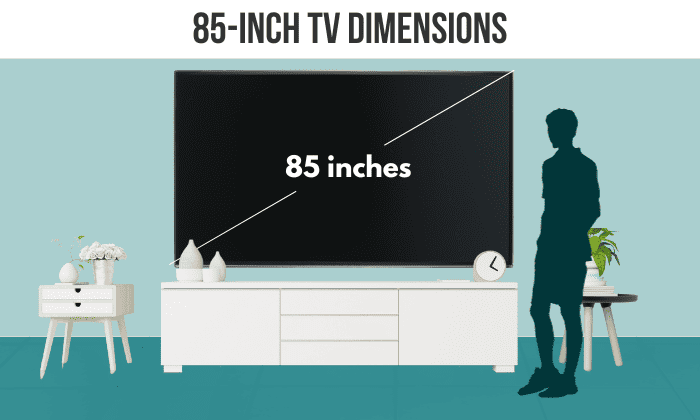The primary part of the building is a door. It is an opening barrier at the entrance of houses, rooms, and other locations that allows people to enter and go. A pocket door is an excellent option in many households for providing home privacy and security once it’s closed. When it’s open, it enables connection and light between different rooms.
However, more and more individuals are looking for better ways to change their house or workplace décor and make it more comfortable and stylish. So, this article will describe six alternatives to pocket doors as well as the advantages and disadvantages of a pocket door.
Table of Contents
Pocket Door Alternatives
These might be the reasons why you would want to leave the pocket door. If you currently have one, it requires a lot of effort to install another type of door. But if you don’t, many choices are also cheaper and require no expert installation support. You will find six pocket door options below to help you personalize your room.
1. Prehung door
A prehung door contains a door panel attached to the frame. It works on hinges on one side and comes with a doorknob and strike plate. It’s kind of an all-in-one doorway set.
- Benefits
Fast and simple installation: These doors make it much easier to renovate the house as they are provided with all the required equipment in the door frame. So, they can reduce the time they take to install.
Low cost: When these doors and their frames are broken or damaged, they don’t cost a lot of money when completing all repairs.
Long-lasting: If they are fitted properly, they will endure for ages and no one can say that the door is an alternative.
- Drawbacks
Carefully preserved: They must be carried and carefully maintained, as they are fragile until they are positioned appropriately at the door opening.
Heavy and thick: They are quite heavy, making moving difficult. This is why some skilled and experienced homeowners would contact a specialist to handle the installation or replacement, which will automatically raise the overall cost.
More effort to replace: When you already have a door frame and require a door, your existing frame has to be removed to place a prehung door, which will create additional effort.
2. Slab door
A door without a frame or hinges is a slab door but generally has a doorknob hole. When the door is installed in a current frame, it must be painted, stained, or furnished with a knob if necessary.
- Benefits
Easy to replace: Unlike pre-hung doors, slab doors don’t come with a frame. This is great for those who want to replace their old pocket door. They can choose different styles for the door and ensure it fits the design of the house.
Durable: These doors may be painted according to the rest of the house decor, and if you choose high-quality materials, they can be stained over and over again without being damaged.
Easily clean: They are also easy to maintain and do not reveal much dirt generally.
- Drawbacks
Look cheap: When the doors are closed, the hollow sound doesn’t sound attractive to many people and might make them look cheap.
Hard to find hardware: It may be annoying when you try to acquire door hardware and cannot obtain anything that suits the rest of your house.
3. Sliding door
Glass sliding doors are quite similar to pocket doors since they also function on sliding paths, but do not hide in the wall, which simplifies the installation process. Most people who know basic DIY can purchase a sliding door package and set it up themselves. This can be an affordable alternative to pocket doors.
- Benefits
Take up little space: Because the doors do not expand, they just slide behind other panels, enabling you to use your area as much as possible.
More secure: The paths are installed both on the top and bottom of the doors, making them stronger. So, they are usually more secure than pocket doors.
Various designs: Sliding doors come in many forms, such as double or triple panel sliding doors, which may accommodate any room size. In other words, they can create a house with lots of aesthetic appeals.
- Drawbacks
Small doorway: Because there must be a fixed panel, both doors cannot open simultaneously. This indicates that a door with two panels may work only as one entryway while it is open. It might visually block off space and make it hard to carry heavy pieces of furniture through the entrance.
Noises: When the rails are not cleaned properly, they get filthy, and the door will not be moving smoothly. That leads to loud noises and annoyance when the door is opening and shutting.
4. Barn door
Because of its mechanics, pocket doors and barn doors may add a modern or antique vibe to any interior space. These door styles provide an elegant element and add flavor to an interior design. The main difference between them is that pocket doors glide into the wall entirely, meanwhile barn doors move along the wall, making them continuously visible.
- Benefits
Easy to set up: This option is surprisingly uncomplicated to place over an existing doorway. If you have enough tools and equipment, you can install it on your own.
Better quality: Although a sliding barn door could cost more than a swing door, it may endure longer and provide you more benefits in usage or simply a better quality door.
- Drawbacks
Require a strong wall: The wall must be sufficiently robust to sustain the heavy hardware required for a barn door.
Take up wall space: You cannot hang paintings or shelves behind the wall where the door moves, since they will knock off the paintings on the wall.
5. French door
French doors have glass panels covering most of their length. Instead of one door, they generally come as a pair. They are also considered outstanding editions of high quality that enhance the appearance of a house.
- Benefits
Illusion of space: If the doors are closed, they provide a barrier between the rooms but still make the area feel bigger and more open thanks to their glass construction.
Brighten the room: French doors contain glass panels that enable light to pass through, which lighten adjoining rooms.
- Drawbacks
Requires more opening space: These doors demand enough area to swing fully and typically won’t fit in a small house.
No privacy: Their glass panels also show that they cannot offer privacy. So, for bedrooms and bathrooms, they are not a great alternative.
6. Hidden door
A hidden door is probably one of the most interesting pocket door alternatives since they have no frames and hardware to install. They are mostly used to divide a bedroom from the living room or hide a working area if it’s not in use.
- Benefits
Multifunctional: Unlike other types of doors, hidden doors can contribute to storage capacity. For example, a bookcase is usually put on one side of the doors.
Style diversity: They are available in several styles that fit the wall to prevent guests from discovering them.
- Drawbacks
Tricky installation: They are quite difficult to install and also are very heavy in general. It will be best if you get expert support to keep the door hidden.
Sliding Pocket Door, What is it?
A pocket door is a sliding door that disappears into a hole in the neighboring wall when it’s completely open. Pocket doors are usually used for architectural purposes, or when no space is available for hinged doors to swing. They travel on a track hung on the ground, which is ideal for narrow locations with limited clearance.
Pocket doors address certain difficulties and face different obstacles. Find out more about the benefits and downsides of installing a pocket door.
Advantages of pocket doors
- Maximize floor space
While traditional swinging doors will take up more room, the greatest benefit of a pocket door is that it does not need any clearance to open. These doors are fitted on paths and slide inside or outside the “pocket” in the wall. They can also help get a significant waste of space from a swinging door in a small bathroom, laundry, or closet.
- Free wall space
A traditional door opens on a wall and locks this section off, which stops you from using the wall. Pocket doors do not occupy any wall area so that you can decorate or hang mirrors and paintings on that wall.
- Improve the connection
Pocket doors are the perfect method to link two areas without a door in the middle of the entrance. You may open the space to parties by putting it between the living room and kitchen. You may also divide your workplace with the pocket door if you want to build a home office from the living room.
- Aesthetic look
How pocket doors slide easily makes your house look incredibly stylish. Hence, some homeowners like to utilize and appreciate their streamlined aesthetic, particularly glass pocket doors.
Disadvantages of pocket doors
- Difficulties with installing
Even skilled carpenters have trouble installing a pocket door. The smallest mistake while placing the frame or track will prevent the door from rolling smoothly.
Furthermore, a pocket door demands a robust wall that is double the width of the door itself. In particular, a 32-inch door needs a wall of 64 inches or more. If there are cables, pipes, or other electrical wires on the wall, they should be removed as well. In other words, there must be no studs on the wall where the pocket door is placed, making it flimsy and easy to wobble.
- Hard to repair
Pocket doors are more prone to malfunction and are more difficult to fix than standard doors. If the frame becomes broken or anything falls into the path, some work is needed to fix it. This may include taking away sections of the wall to access the rail. These doors need to be precisely installed and repaired to work effectively; therefore, they are not excellent DIY projects.
- Lack of credibility
Usually, they slip off their tracks, move hard, have difficulties locking, and make a sound when rolling. If you have small children who could get aggressive on the door, this is even more likely to happen. Thorough maintenance and oil spraying can minimize the likelihood of these issues. However, traditional doors with only occasional lubrication can operate smoothly for decades.
- Noisy
A standard swinging door can be silently opened and closed, while pocket doors always make noises when it travels on the paths regardless of how gently you pull. Nylon-rolling aluminum rails decrease noise but do not remove it. Think twice before putting a pocket door next to your bedroom if you have difficulty falling asleep.
- Limited ease of access
For people with mobility or dexterity problems, pocket doors might be difficult to use. In particular, an arthritic patient is probably to have more difficulties with a pocket door because of their little strength or dexterity in hands.
- Trouble sealing
Pocket doors may not provide a secure barrier because they are not as tight as traditional doors, meaning that noise, smell, and light can pass through them. They allow noises to move from one room to another. The inner pocket doors are also pretty bad at trapping the scent of a room, such as pantries or bathrooms. Likewise, more light will escape from space to space.
Conclusion
Pocket doors and their substitutes are intended to extend and condense areas to suit people’s demands. It can be tough to find alternatives to pocket doors, and this is mainly dependent on your budget, style preferences, and readiness to change your current house.
Note that the choice of a replacement for a pocket door involves materials, qualities, and other elements as they influence overall costs and contribute to the door lifespan. Was this article helpful to you? If so, leave your points of view in the comment section and share them with your family and friends.

Hi, I am Roseanne Jones, an aspiring home designer that wants to make you feel more at home with your new house.With nearly five years of redecorating old residents and arranging new ones, I am confident that I can give you the best advice on your lovely place.


